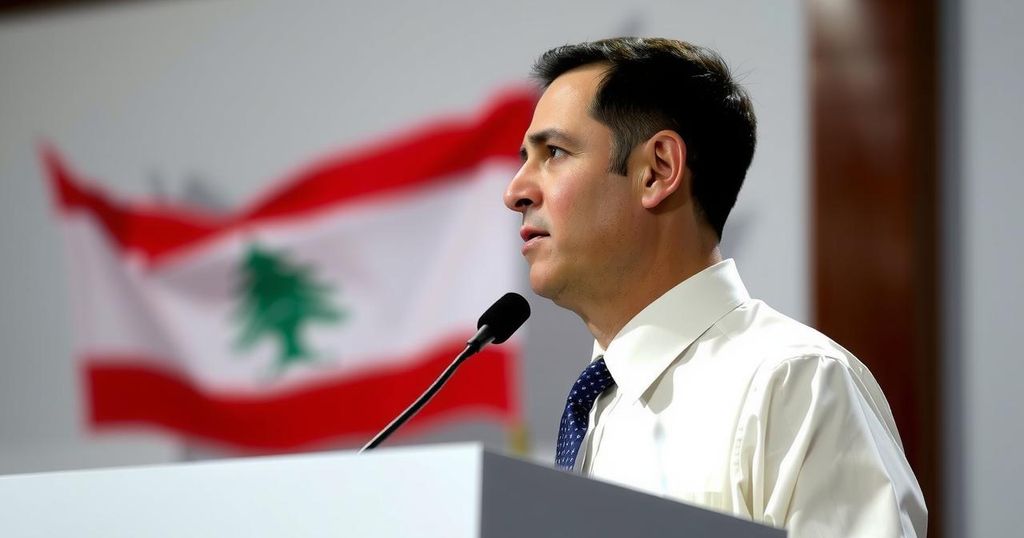Lebanon is set to elect a new president after over two years without effective leadership. The election occurs against significant political and economic challenges, with urgent calls for stability following recent conflicts. Joseph Aoun, the commander-in-chief of the armed forces, emerges as a promising candidate. This election holds the potential to restore governance and address Lebanon’s pressing crises.
Lebanon is poised to elect a new president following a prolonged period without effective leadership for over two years. The election is set to take place this Thursday, amid a backdrop of significant political challenges, economic turmoil, and recent conflicts involving Hezbollah and Israel. The Lebanese parliament has been unable to reach a consensus on candidates, but the imminent need for stability and governance may pave the way for the election of a credible leader.
Lebanon has faced multifaceted crises over recent years, primarily characterized by a severe economic downturn and political stalemate. The transitional government led by Prime Minister Najib Mikati has struggled to address these issues effectively. Moreover, the recent ceasefire agreement between Israel and Hezbollah has created an urgent demand for a president who can facilitate peace and provide a streamlined government capable of addressing socio-political instability and the needs of millions of displaced individuals.
The upcoming presidential election in Lebanon presents a critical opportunity for the nation to obtain much-needed leadership and stability after prolonged uncertainty. While Joseph Aoun emerges as a leading candidate supported by various factions, the election’s outcome will significantly influence Lebanon’s path toward recovery and governance. A legitimate, elected government is essential for establishing order, restoring public trust, and addressing the pressing humanitarian and economic crises facing the country.
Original Source: www.dw.com






